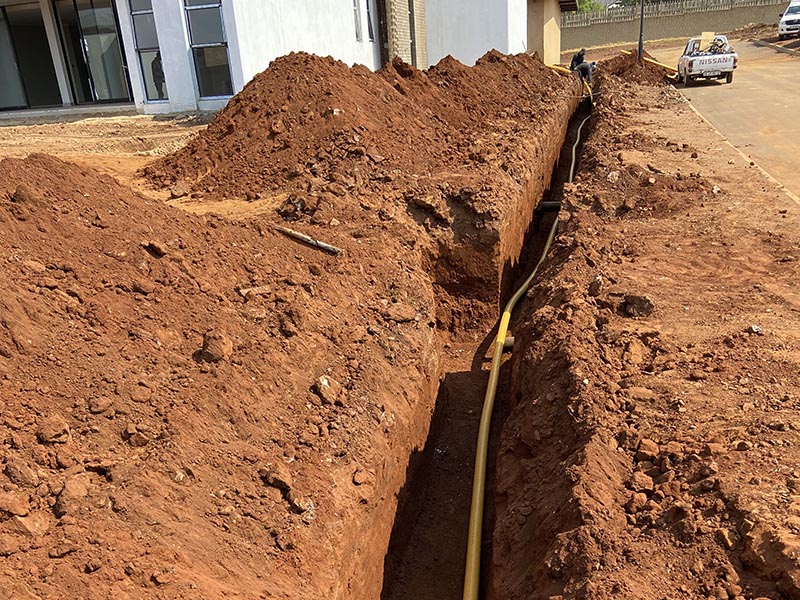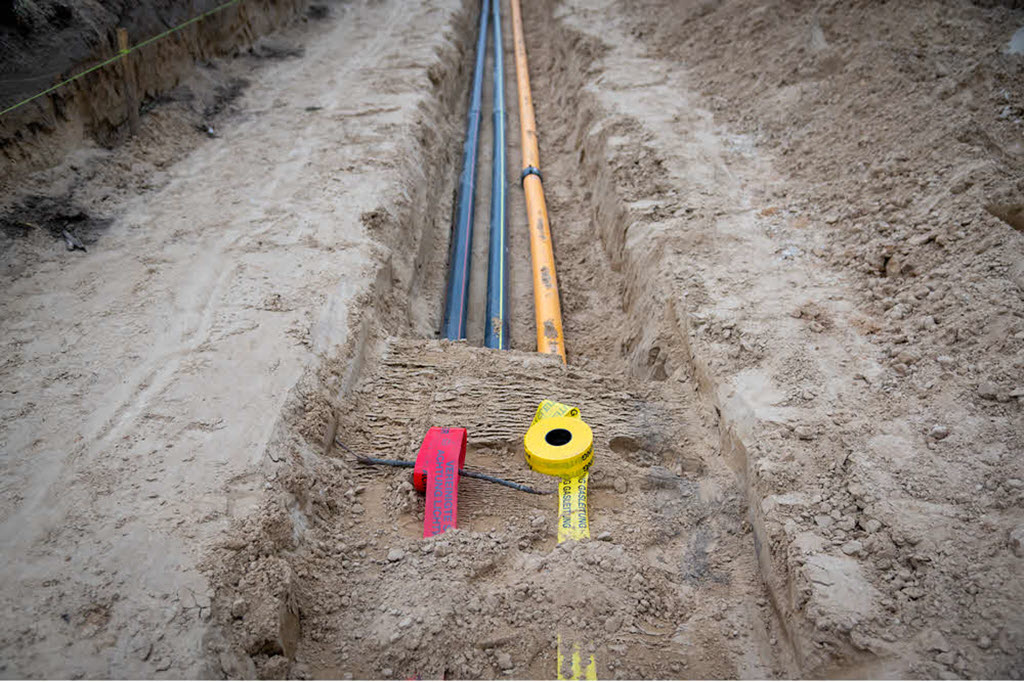Gas Line Servicesin Grosse Pointe Farms MI
Safe and Efficient Gas Line Installation for Your Property
We Are Locally Owned & Operated For Over 37 Years
Contact Us Today!
We Serve Businesses In And Around The Following Cities:
About Gas Line Services
Introduction to Gas Line System in Grosse Pointe Farms
When you think about life’s critical amenities in commercial properties, gas lines are a significant consideration. With their integral role in providing power for heating, cooking, and other functions, understanding gas lines, their installation process, benefits, and real-world application becomes paramount. This guide provides a detailed overview of gas line systems specifically in the city of Grosse Pointe Farms, Michigan, with a focus on commercial properties.
The Process of Gas Line Installation
The process of installing a gas line generally starts with assessing the property’s exact needs. This entails considering factors such as the size and number of appliances and their location. The aim is to determine the most efficient and safe route for the gas line. Professional gas line plumbers must handle this process, such as the experienced team at D&J Contracting. They ensure the gas line installation near you is done following all safety standards, codes, and norms, whether they are installing a new flexible propane gas line in your commercial property or adding a gas line to an existing system.
Material Selection: The Importance of the Right Gas Line
Choose the right gas line material—one that best suits your property’s needs, is critical. For lower pressure systems indoors, a flex gas line or flexible gas line might be more appropriate. However, for high-pressure systems or outdoor installations, a more robust option like an underground gas line, usually made of steel, that can withstand harsh weather conditions, might be best. D&J Contracting can assist you in choosing the right material—from copper gas lines to flexible natural gas lines—ensuring that you meet all safety requirements.
Benefits of a Well-Installed Gas Line System
When professionally installed, gas lines can far outperform electric alternatives, offering multiple benefits. First, they provide a cost-efficient way to fuel appliances. Whether you’re installing a gas line for a bbq grill or an efficient gas fireplace, gas appliances generally cost significantly less to run than electric ones. Natural gas lines are also praised for their reliability, as underground gas lines aren’t affected by storms or power outages, providing steady and uninterrupted services. Thirdly, property owners who use a fire pit gas line or similar gas appliances can significantly enhance the property’s appeal, potentially increasing its value.
Real-World Applications: Enhancing Commercial Property with Gas Line Systems
The practical application and benefits of gas lines are extensive in commercial properties. For instance, installing a gas line for grill at a restaurant can deliver quick, even heat, allowing chefs to cook efficiently. Likewise, adding a gas line to power the heating system of a hotel helps ensure a warm and welcoming ambience for guests, regardless of any power disruptions in Grosse Pointe Farms. Similarly, in an office building, a consistent gas-powered heating system can keep staff comfortable, increasing their productivity. When trusted professionals, such as D&J Contracting, install these gas lines, they become not just a utility but an asset that can enhance the working environment and property value.
Maintenance and Safety Consideration
With the benefits of a gas line system comes the responsibility of maintenance and safety. Regular checks — including examining gas line caps, inspecting for signs of wear and tear on the plastic gas line or other components — ensure that your gas line system remains safe and functional. An outdoor gas line or propane underground gas line might require professional attention to prevent issues that could arise from natural elements and earth movement. It is here that skilled service providers like D&J Contracting become key partners in the maintenance and safety of your commercial property’s gas line system.
Why Choose Professional Gas Line Installation Services
Professional gas line installation services, like those offered by D&J Contracting, hold several advantages over DIY attempts. They possess the training and experience to handle the complexity of the gas line install process while ensuring all local and national safety guidelines are upheld. Whether it’s determining if a flex propane gas line or a copper gas line would be better for your property, or making sure the gas line into the house is safely connected, their expertise is invaluable.
In conclusion, gas lines are an essential and beneficial part of commercial properties. Their potential to enhance efficiency, functionality, and even property value makes them a smart investment for any property owners in Grosse Pointe Farms. However, their installation, maintenance, and safety should not be taken lightly. Professional gas line installation services, like those offered by D&J Contracting, ensure that your property’s gas line system is safe, efficient and long-lasting, allowing you to enjoy all the benefits without any of the worry.
Gas Line Services Gallery


Call Us Today to receive your Free Quote for
Gas Line in Grosse Pointe Farms
Serving: Grosse Pointe Farms, Michigan

About Grosse Pointe Farms, Michigan
The area that would become Grosse Pointe Farms was originally incorporated as the Village of Grosse Pointe in 1879. By 1889, the village extended from land just above Provencal Road in the northeast to Cadieux Road in the west. In 1893, the portion of the village east of Fisher Road broke off and incorporated as the Village of Grosse Pointe Farms after a dispute over the location of a tavern. It was not until 1949, however, that the village incorporated as a city.
The U.S. Postal Service operates the Grosse Pointe Post office in Grosse Pointe Farms.
According to the United States Census Bureau, the city has a total area of 12.32 square miles (31.91 km), of which 2.75 square miles (7.12 km) is land and 9.57 square miles (24.79 km) is water. The water is part of Lake St. Clair.
The Farms has a more varied topography and streetscape than the other southern Grosse Pointes. While Grosse Pointe and Grosse Pointe Park are built on a standard street grid and are basically flat, Grosse Pointe Farms is partially built on the same grid flowing out of Detroit, but also features districts with irregular, curving street paths. A low but noticeable ridge runs through the center of the city. The Farms also contains the “point” in Grosse Pointe, where, just east of the Grosse Pointe War Memorial, there is a large bend in the lakeshore, such that those on the shoreline face east, instead of south, as they do when on the shoreline of neighboring Grosse Pointe, closer to the entrance of the Detroit River.
The cityscape varies widely, with large sections of old homes ranging from bungalows to mansions, and a few newer sections with ranch houses or luxury homes built on subdivided estates. The Farms has a downtown on Kercheval Avenue combining historic buildings with newer, neo-traditional storefronts.
| Census | Pop. | Note | %± |
|---|---|---|---|
| 1900 | 817 | — | |
| 1910 | 862 | 5.5% | |
| 1920 | 1,649 | 91.3% | |
| 1930 | 3,533 | 114.3% | |
| 1940 | 7,217 | 104.3% | |
| 1950 | 9,410 | 30.4% | |
| 1960 | 12,172 | 29.4% | |
| 1970 | 11,701 | −3.9% | |
| 1980 | 10,551 | −9.8% | |
| 1990 | 10,092 | −4.4% | |
| 2000 | 9,764 | −3.3% | |
| 2010 | 9,479 | −2.9% | |
| 2020 | 10,148 | 7.1% | |
| U.S. Decennial Census | |||
As of the census of 2010, there were 9,479 people, 3,718 households, and 2,770 families residing in the city. The population density was 3,446.9 inhabitants per square mile (1,330.9/km). There were 3,952 housing units at an average density of 1,437.1 per square mile (554.9/km). The racial makeup of the city was 95.4% White, 1.8% African American, 0.2% Native American, 1.3% Asian, 0.4% from other races, and 1.0% from two or more races. Hispanic or Latino of any race were 2.0% of the population.
There were 3,718 households, of which 33.7% had children under the age of 18 living with them, 66.0% were married couples living together, 6.2% had a female householder with no husband present, 2.3% had a male householder with no wife present, and 25.5% were non-families. 23.0% of all households were made up of individuals, and 12.3% had someone living alone who was 65 years of age or older. The average household size was 2.55 and the average family size was 3.02.
The median age in the city was 45.1 years. 25.8% of residents were under the age of 18; 4.8% were between the ages of 18 and 24; 19.5% were from 25 to 44; 32.6% were from 45 to 64; and 17.5% were 65 years of age or older. The gender makeup of the city was 48.8% male and 51.2% female.
At the 2000 census, there were 9,764 people, 3,804 households, and 2,868 families residing in the city. The population density was 3,618.8 inhabitants per square mile (1,397.2/km). There were 3,937 housing units at an average density of 1,459.2 per square mile (563.4/km). The racial makeup of the city was 97.58% White, 0.65% African American, 0.11% Native American, 1.13% Asian, 0.11% from other races, and 0.42% from two or more races. Hispanic or Latino of any race were 1.11% of the population.
There were 3,804 households, of which 34.3% had children under the age of 18 living with them, 67.8% were married couples living together, 6.1% had a female householder with no husband present, and 24.6% were non-families. 22.3% of all households were made up of individuals, and 12.0% had someone living alone who was 65 years of age or older. The average household size was 2.57 and the average family size was 3.03.
Age distribution was 26.5% under the age of 18, 3.6% from 18 to 24, 23.4% from 25 to 44, 28.6% from 45 to 64, and 17.9% who were 65 years of age or older. The median age was 43 years. For every 100 females, there were 90.6 males. For every 100 females age 18 and over, there were 87.5 males.
The median household income was $100,153, and the median family income was $109,264. Males had a median income of $87,108 versus $53,241 for females. The per capita income for the city was $54,846. About 1.5% of families and 2.1% of the population were below the poverty line, including 3.1% of those under age 18 and 1.4% of those age 65 or over.
The community is served by Grosse Pointe Public Schools (GPPSS). Public schools within Grosse Pointe Farms include Père Gabriel Richard Elementary School, Kerby Elementary School, Brownell Middle School, and Grosse Pointe South High School. Along with Richard and Kerby, Monteith Elementary School in Grosse Pointe Woods serves a section of the city. All residents are zoned to Brownell. Almost all residents are zoned to GPS High, while those in a northwest section are zoned to Grosse Pointe North High School in Grosse Pointe Woods.
Saint Paul Catholic School is in Grosse Pointe Farms.
The Grosse Pointe Public Library operates the Central Branch in Grosse Pointe Farms.
Call Us Today to receive your Free Quote for
Gas Line in Grosse Pointe Farms
Related Services in Grosse Pointe Farms, Michigan
We Serve Businesses In The Following Zip Codes:
48007, 48015, 48021, 48026, 48035, 48036, 48038, 48042, 48043, 48044, 48045, 48046, 48047, 48048, 48050, 48051, 48066, 48071, 48080, 48081, 48082, 48083, 48084, 48085, 48088, 48089, 48090, 48091, 48092, 48093, 48098, 48099, 48225, 48230, 48236, 48310, 48311, 48312, 48313, 48314, 48315, 48316, 48317, 48318, 48397